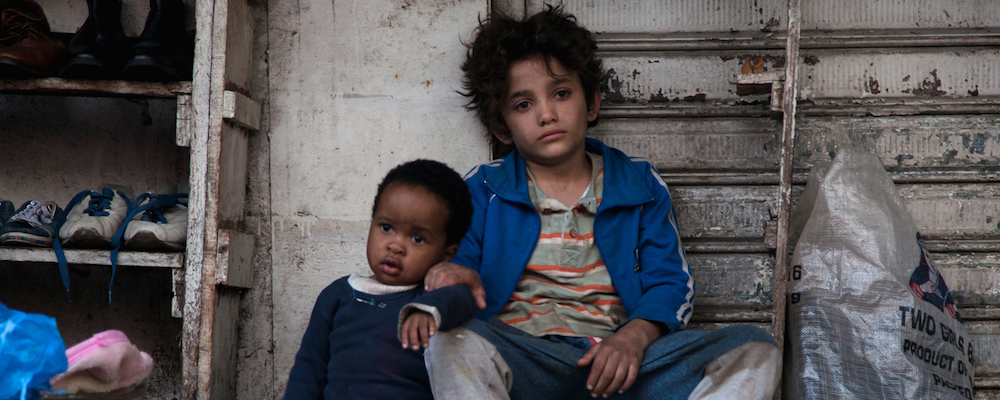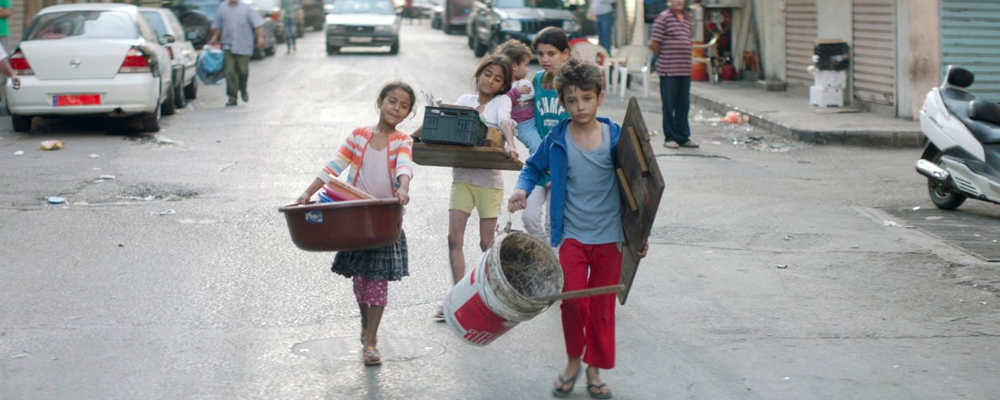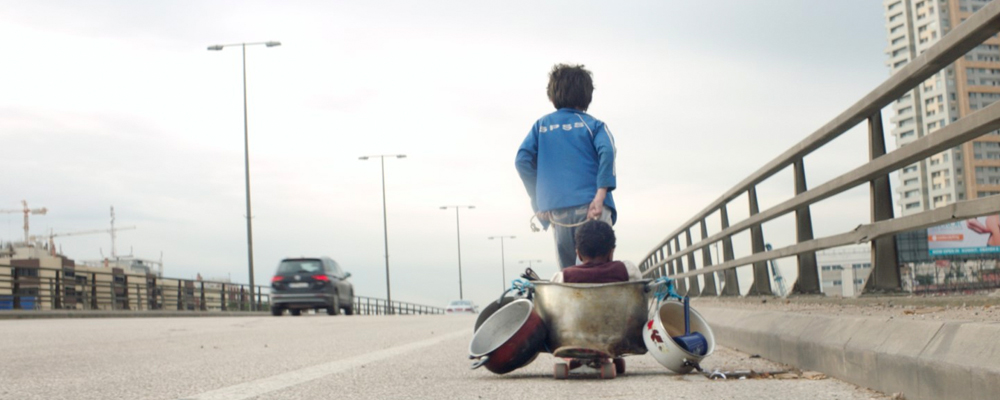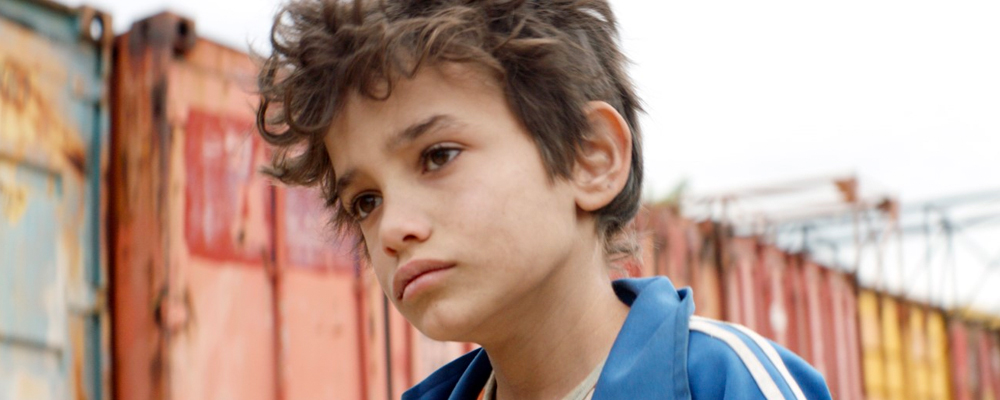Lebanese Filmmaker Nadine Labaki on Giving Refugee Children a Voice in Compelling Drama ‘Capernaum’
Sandra Miska
One of the most eye-opening films of the year is “Capernaum,” a brutally heartbreaking drama from Lebanon. Nadine Labaki not only serves as the film’s director and co-writer, but also as its sole professional actor, as the rest of the cast is comprised of “real people,” including 12-year-old lead Zain Al Rafeea, a real-life Syrian refugee. While the misfortunes piled on Al Rafeea’s character may seem at times excessive, or even manipulative, they are all inspired by experiences from not only his own life, but also those of several other impoverished children interviewed by Labaki.
To give an idea of just how underprivileged the character of Zain is, he doesn’t even know his exact age, and neither do his parents (Kawthar al Haddad, Fadi Kamel Youssef), as his birth was never registered due to his family’s lack of “papers.” With this background, it’s little wonder that he winds up in a courtroom being arraigned for a violent crime. With help from his lawyer (Labaki), Zain decides to sue his parents for his being born.
To help the viewer understand this defiant act on the part of Zain, Labaki flashes back to months earlier, when Zain was living in a cramped Beirut with his parents and numerous sibling, including his 11-year-old sister Sahar (Haita “Cedra” Izzam). To help his family survive, not only does he do errands for local shopkeepers, he also assists his parents with their own shady operations, including selling drugs on the streets. Zain has developed a tough exterior, something that comes through not only from his colorful vocabulary, but also from the maturity that Al Rafeea brings to his performance, the kind of gravitas that such a young person only acquires from having too many adult burdens.
It’s not difficult here to make a kid in Zain’s circumstances sympathetic, but Labaski and Al Rafeea go further by making him admirable. When it comes to Sahar, the person in the world to whom he is closest, he is loving and protective. Acutely perspective of his parents’ nefarious intentions, he reacts quickly as soon as he spots blood on Sahar’s sheets (the kids all sleep together in one room), even helping her secure maxi pads without their parents’ knowledge. But it’s little use, as she is married off to their landlord’s adult son, Assaad (Nour El Husseini). This leads to a breaking point for Zain, and he runs away to fend for himself.
Zain ends up making a makeshift family of sorts with an amusement park worker, Ethiopian immigrant Rahil (Yordanos Shiferaw), whose illegal status limits her options. Seeing something in Zain, she trusts him to look after her toddler son, Jonas (Boluwatife Treasure Bankole), while she works, a job he takes seriously, although he finds himself in another desperate situation after Rahil fails to come home after work one evening.
Although it wouldn’t be correct to call “Capernaum” a courtroom drama, the most compelling scenes occur under the eye of the judge (played by actual retired jurist Elias Khoury). When it comes to Zain’s parents, Labaki miraculously is able to make them inspire pity, as it becomes clear that they are part of a cycle of poverty, neglect and ignorance.
Labaki, as well as her husband, composer/co-producer Khaled Mouzanar, spoke to Entertainment Voice at the recent AFI Fest. The couple explained how the refugee crisis in Beirut inspired the idea for “Capernaum” four years ago when Labaki was pregnant.
“The sight of these children is almost becoming part of the setting in our city, unfortunately, with the refugee crisis growing,” explained Labaki.”So I just wanted to know how it felt to be one of those kids. How does it feel to be ignored? Because that’s what we usually do, unfortunately.”
“We’ve been seeing a lot of kids on the streets in a way that we’ve never seen or witnessed before,” added Mouzanar. “[Nadine’s pregnancy] drove her to want to talk about this kind of story, to think about what a [refugee child] would say to us, and try to be his voice.”
Labaki went on to explain how it was her desire to give a voice to a refugee child in a world of apathy.
“We tend to keep going; we tend to keep going about our lives, ignoring the problem. Sometimes not even looking at those children… If this child standing outside my window at night could talk, what would he tell me? How would we express himself?”
“Capernaum” opens Dec. 14 in NYC and L.A., with a national release to follow.




